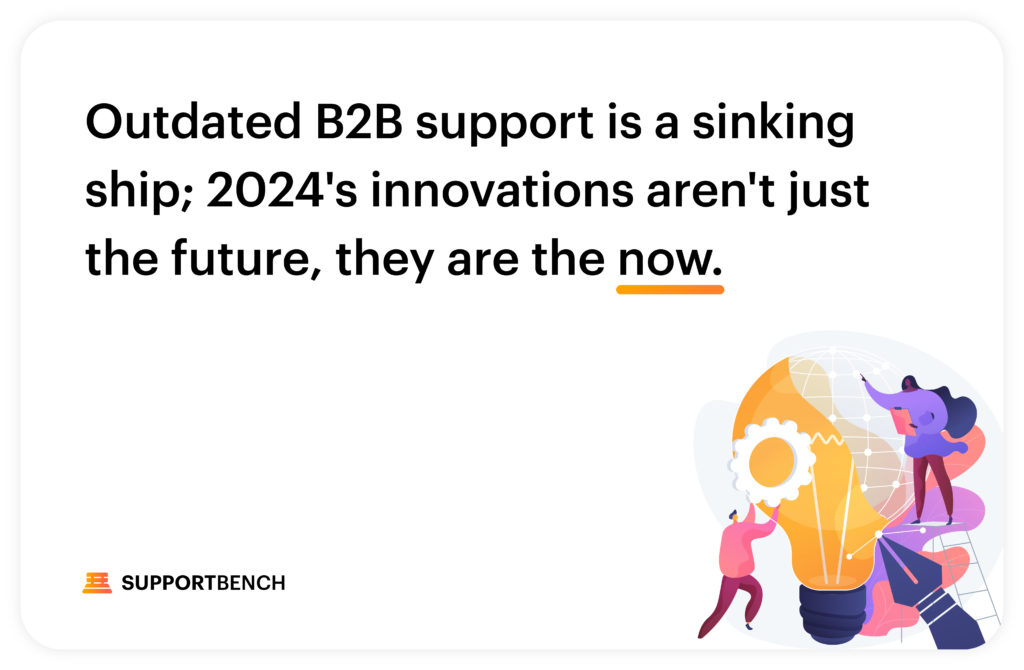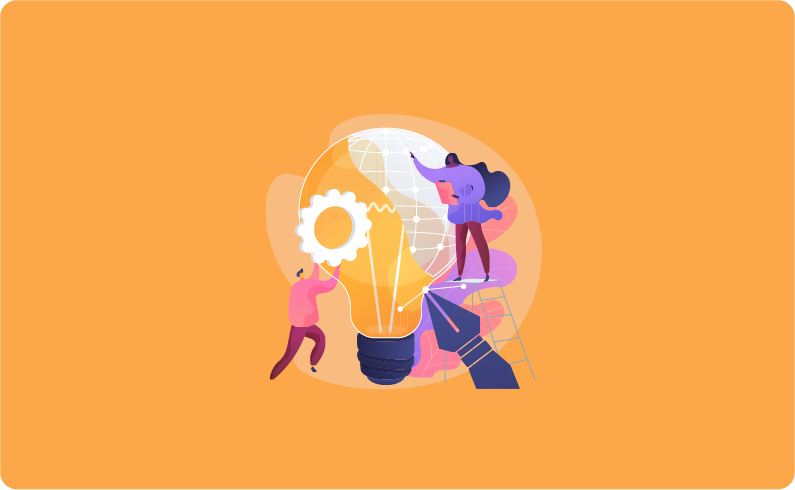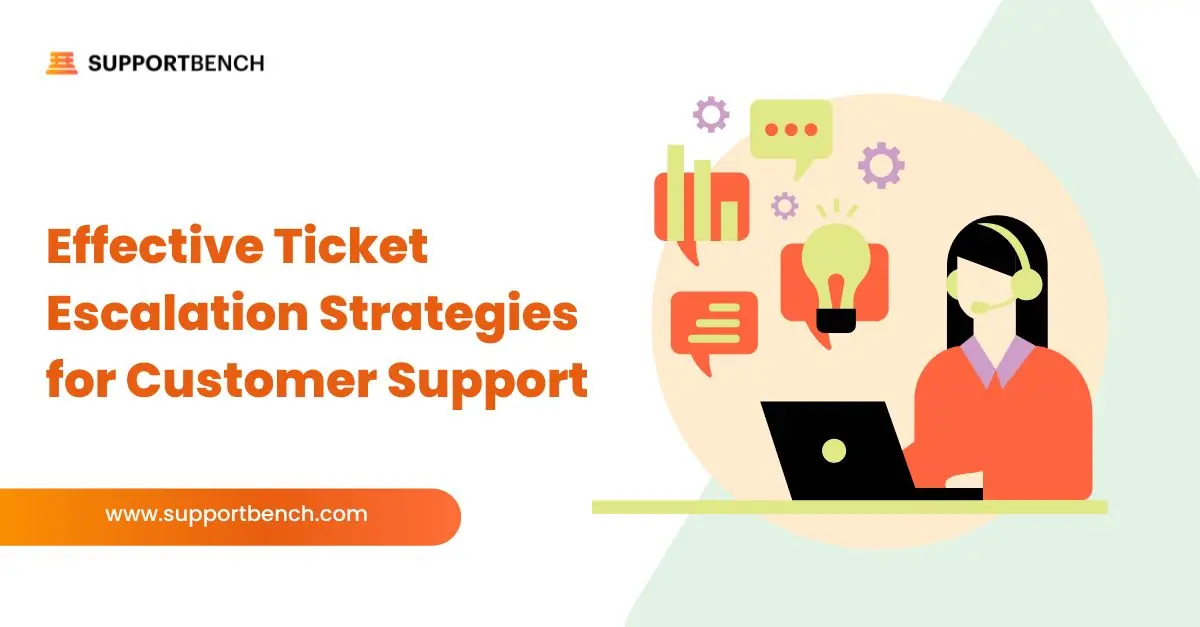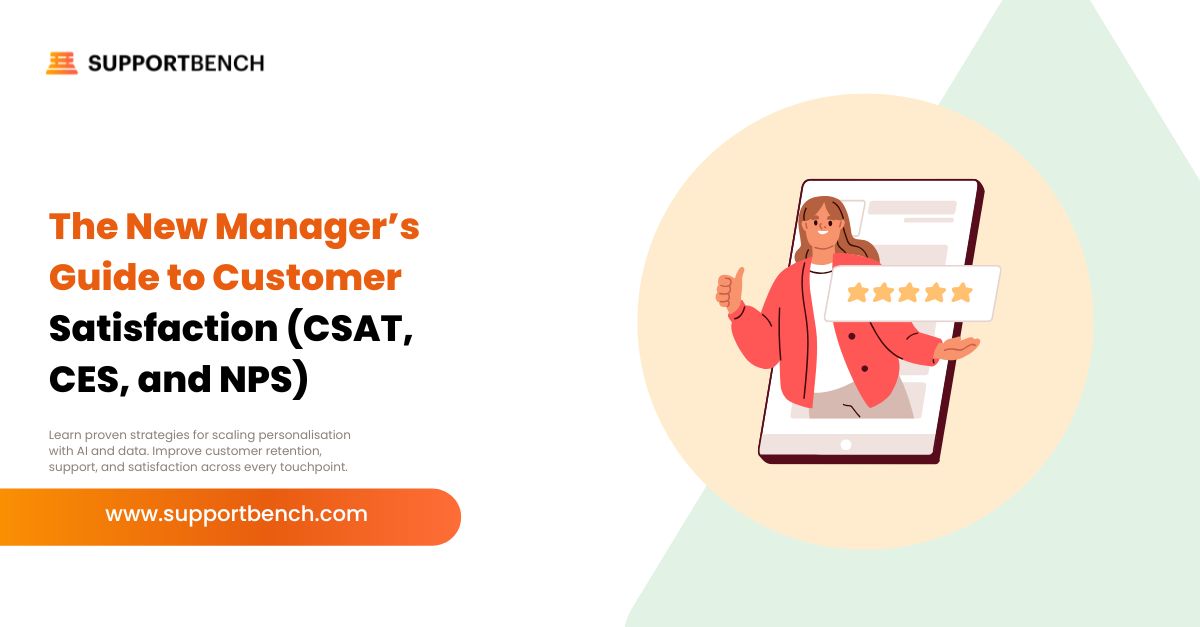In the rapidly evolving landscape of B2B customer support, staying ahead means not just keeping pace with the latest trends but anticipating and shaping them. As we approach 2024, several groundbreaking innovations are set to redefine how companies manage and deliver customer support. These advancements promise to enhance the customer experience, streamline support operations, and provide unprecedented insights into customer interactions. In this article, we’ll explore the top five innovations in B2B customer support management for 2024, offering actionable insights and strategies that support leaders can implement today to elevate their teams. We’ll also delve into how Supportbench is pioneering these trends, providing a cutting-edge, comprehensive solution that aligns perfectly with the future of customer support. Not all companies will take advantage of these great shifts and may suffer unnecessary consequences.

Let’s begin with the top 5 innovations:
1. Autonomous Support Systems
Let’s start with the game-changer, right out of the gate! Autonomous support systems are emerging as groundbreaking in B2B customer support. Leveraging AI and machine learning, these systems can handle routine inquiries, triage tickets, and even resolve complex issues without human intervention. A study by Gartner predicts that by 2024, AI will handle 30% of all B2B customer support requests.
So, begin by implementing a Support platform with fully integrated AI-powered chatbots to manage initial customer interactions and FAQs. This system should also have implemented AI-driven ticket triaging systems to route issues to the appropriate support agents efficiently. You can then leverage machine learning algorithms to analyze patterns and predict potential issues long before they escalate.
A newer Support platform with fully integrated AI will be at the forefront of this innovation with AI-driven summaries, knowledge base article creation, and sentiment analysis. This not only reduces the workload on human agents but also ensures quick, accurate, and personalized responses, boosting customer satisfaction.
2. Hyper-Personalized Support Experiences
The era of one-size-fits-all customer support is over. In 2024, hyper-personalization will take center stage. According to a Salesforce report, 76% of B2B customers expect companies to understand their needs and expectations. Personalized customer support can increase satisfaction and loyalty significantly.
With such high value customers, it’s imperative to use customer data to tailor support experiences, such as personalized greetings and targeted solutions. SLA’s will be your best friend during this transition. You must use a Support system than has dynamic SLAs that adjust based on customer profiles and issue complexity. Data from these SLA’s can provide you with more accurate customer health scoring to identify at-risk accounts and prioritize their support needs. By using a Premium Support platform, with dynamic SLAs and customer health scoring, you ensure that each customer receives a support experience tailored to their unique circumstances, driving both loyalty and trust.
3. Predictive Analytics and Proactive Support
Moving from reactive to proactive support is a key trend for 2024. Predictive analytics enable support teams to identify and address issues before they impact the customer. A study by Forrester indicates that predictive analytics can improve customer retention rates by up to 15%.
What could be better than knowing there’s a problem before the escalation even occurs?? To know how to fix a problem before it IS a problem. With a feature rich Support platform, you can implement predictive analytics to identify trends and potential issues based on customer interactions and product usage. This can help you proactively reach out to customers with solutions or guidance before they encounter a problem. And again, you can use AI to analyze customer sentiment and feedback, anticipating needs and improving experiences.
4. Enhanced Integration and Collaboration
In 2024, seamless integration and collaboration among various business systems will be crucial for providing efficient support. As per a report by Deloitte, 27% of organizations believe integration of systems is a significant challenge in customer support.
It’s no longer acceptable to have 7 to 10 different tools for each Support agent. It’s cumbersome, costly and entirely inefficient. It is the way of yesterday, certainly not today. Now, you must ensure your support software integrates smoothly with other business systems, such as CRM and sales platforms. You can then use APIs to facilitate the exchange of customer data and insights across departments. This will help you encourage cross-departmental collaboration to provide comprehensive support solutions, giving your company a holistic approach to revenue building, customer delight, referrals & upselling.
5. Remote and Asynchronous Support
The shift to remote work has revolutionized support structures. Asynchronous support, where communication doesn’t happen in real-time, is becoming increasingly popular. According to a Buffer report, 97% of remote workers would like to work remotely, at least some of the time, for the rest of their careers.
To continue to employ the best talent and provide them their most preferred environment, you can offer asynchronous support channels like email, support tickets, and knowledge bases and equip your team with tools that facilitate remote work and collaboration. With the Support Platform that’s a single point of truth, you can adopt flexible SLAs that accommodate different time zones and working hours.
Falling Behind the Competition
Not everyone will embrace these new and pressing innovations. And companies that fail to embrace these advancements may face several dire consequences, ultimately jeopardizing their competitive edge, customer satisfaction, and financial health.
A report by Microsoft states that 96% of consumers worldwide say customer service is an important factor in their choice of loyalty to a brand. Without adopting the latest innovations, businesses risk offering subpar customer experiences, leading to decreased loyalty and the loss of customers to competitors who provide superior support.
Inefficiency and Increased Costs
Autonomous support systems and AI-driven tools significantly enhance efficiency and reduce costs. Companies not utilizing these innovations are likely to face bloated support teams, longer resolution times, and higher operational costs. A study by IBM reveals that businesses can save up to 30% in customer support costs by implementing conversational solutions like chatbots. Failing to leverage these technologies not only leads to inefficiency but also strains the company’s financial resources.
Poor Customer Insights and Lost Opportunities
Data-driven optimization is no longer a luxury but a necessity. Without predictive analytics, sentiment analysis, and customer health scoring, companies miss out on crucial insights that could drive business growth. This blindness can lead to lost opportunities, as firms remain unaware of customer needs, potential market gaps, and areas for improvement. A survey by NewVantage Partners shows that 91.6% of Fortune 1000 companies are increasing their investments in big data and AI, indicating the importance of data-driven decision-making.
Lack of Scalability and Flexibility
As businesses grow, their customer support needs evolve. Companies that do not invest in scalable and flexible support solutions may find themselves unable to adapt to changing demands. This rigidity can lead to customer dissatisfaction during peak times or when facing unexpected challenges. In contrast, firms like Supportbench that provide adaptable solutions are better equipped to handle growth and change, ensuring consistent customer support quality.
Decreased Employee Satisfaction and Productivity
Modern support innovations aren’t just about customers; they also significantly impact employee satisfaction and productivity. Remote and asynchronous support options, enhanced collaboration tools, and autonomous systems make support agents’ jobs easier and more fulfilling. Companies that neglect these innovations risk lower employee morale, higher turnover rates, and decreased productivity, which can further deteriorate the quality of customer support.
Brand Damage and Negative Public Perception
In the age of social media and online reviews, a company’s reputation can be significantly impacted by its customer support quality. Firms not adopting the latest innovations risk negative customer experiences that can quickly translate into public criticism. This negative perception can damage the brand’s image, leading to a loss of trust and a decrease in new customer acquisitions.
In Summary
The consequences of ignoring the innovations in B2B customer support management are severe and multifaceted. They can lead to a loss of competitive advantage, operational inefficiencies, missed business insights, scalability challenges, decreased employee morale, and potential brand damage. In contrast, companies that embrace these advancements, like those leveraging Supportbench and other new B2B Support Platforms, are positioning themselves for success. They’re not only enhancing their customer support capabilities but also ensuring their long-term sustainability and growth in an increasingly demanding and competitive business landscape. They promise to enhance the customer experience and to revolutionize how support teams operate. And by embracing these trends, support leaders can position their teams at the vanguard of customer support excellence.















